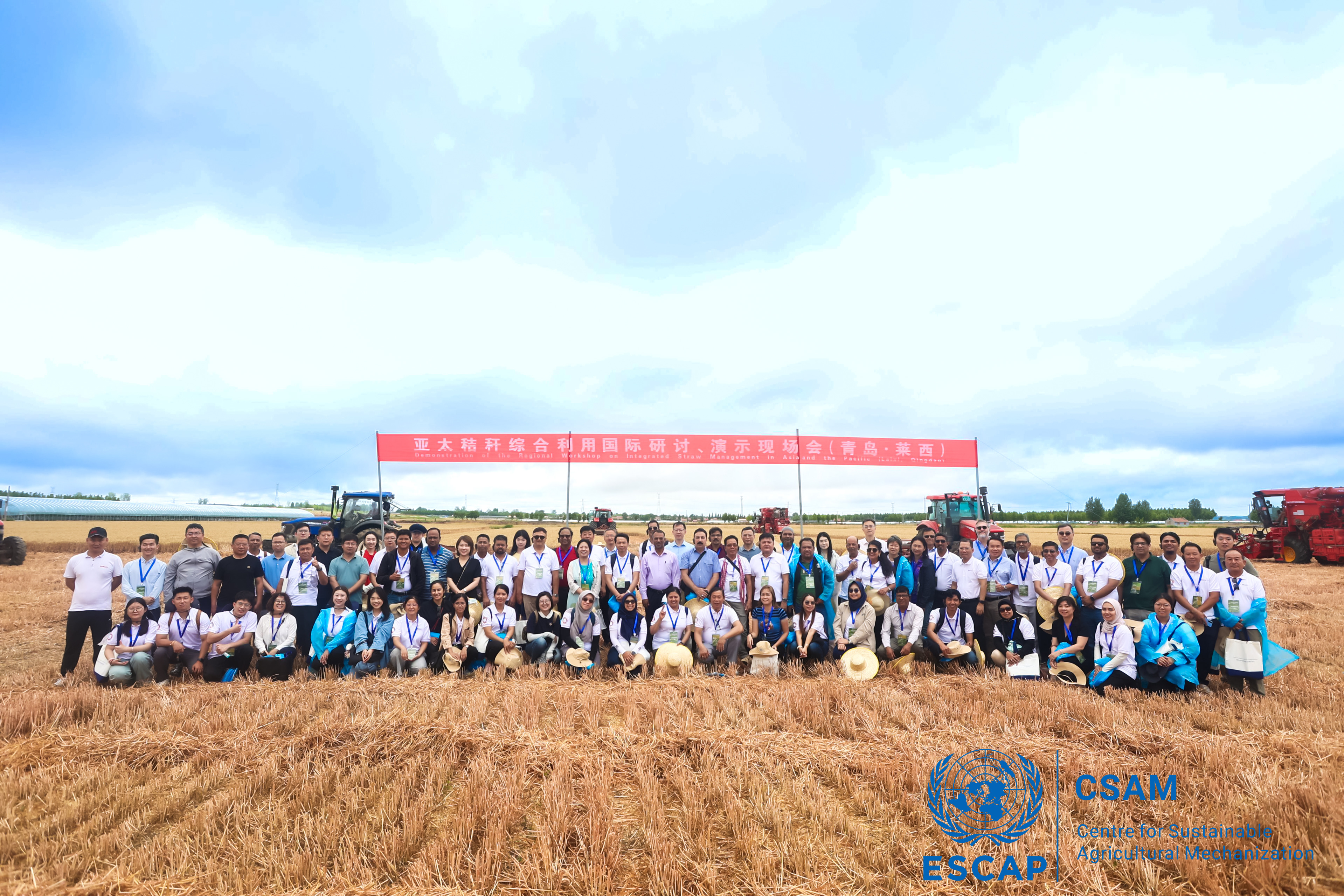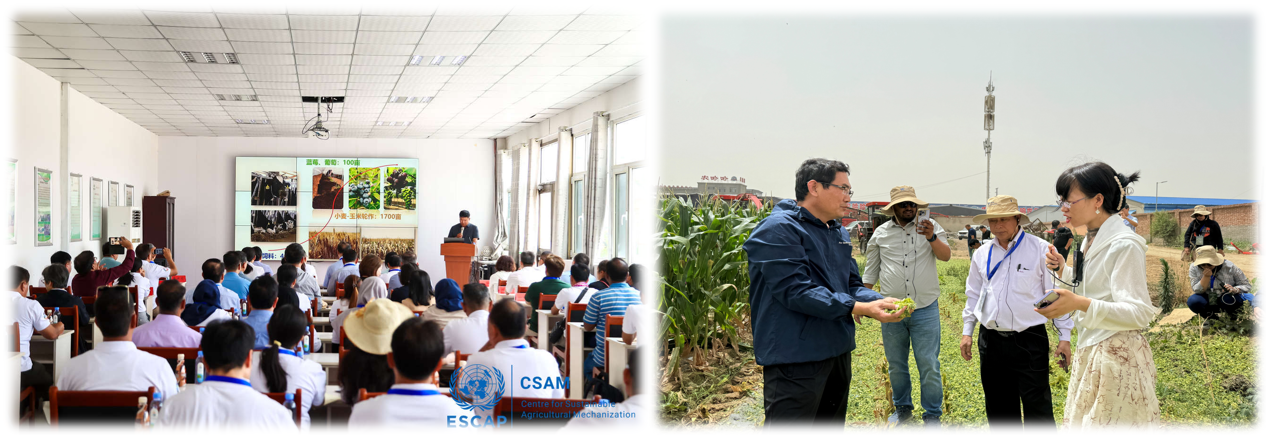Pilot Teams of CSAM Regional Initiative on Integrated Straw Management Explore Sound Practices and Technologies in China
From 19 to 24 June 2024, five delegations from Cambodia, Indonesia, Lao PDR, Nepal and Thailand participated in the “Study Tour on Integrated Straw Management in China,” traveling across six cities: Qingdao, Laixi, Weifang, Dezhou, Shijiazhuang, and Beijing. The delegations attended a “Regional Workshop on Integrated Straw Management in Asia and the Pacific”, visited 10 agricultural machinery manufacturers and the Institute of Environment and Sustainable Development in Agriculture (IEDA) of the Chinese Academy of Agricultural Sciences (CAAS).

To address the widespread issue of straw burning in Asia and the Pacific region, the Centre for Sustainable Agricultural Mechanization (CSAM) of the United Nations Economic and Social Commission for Asia and the Pacific (ESCAP) is leading a ‘Regional Initiative on Mechanization Solutions for Integrated Management of Straw Residue in Asia and the Pacific.’ This initiative aims to identify, test, and promote mechanization solutions for integrated straw management. Between 2019 and 2023, CSAM successfully implemented five pilot projects in Cambodia, China, Indonesia, Nepal, and Viet Nam.

In 2024, CSAM secured funding from the 2030 Agenda for Sustainable Development Sub-Fund of the United Nations Peace and Development Trust Fund (UNPDF) to execute in 2024-28 a second phase project titled “Strengthening Mechanization-Based Solutions for Climate-Smart Crop Residue Management in Cambodia, Indonesia, and Nepal” which will create new pilot sites for the dissemination, testing and adaptation of mechanization solutions for integrated straw management. Additionally, CSAM is exploring the opportunity and feasibility to conduct pilot projects in Lao PDR and Thailand.
At the start of the project, the “Study Tour on Integrated Straw Management in China” aimed to expose teams and delegates from the pilot sites to proven and innovative technologies and practices for integrated straw management through mechanization solutions, guiding the development of pilot activities in their respective countries.

The Study Tour commenced with the “Regional Workshop on Integrated Straw Management in Asia and the Pacific” held on from 19 to 20 June in Qingdao. The Regional Workshop gathered over 100 representatives from 16 countries and international organizations, providing a unique platform to share good practices and foster knowledge exchange on mechanization solutions to address crop residue burning, ultimately promoting regional collaboration for sustainable agricultural mechanization and climate-smart agriculture. Representatives from the pilot teams of Cambodia, China, Indonesia, Nepal, and Viet Nam shared valuable insights and perspectives from their implementation of CSAM pilot projects during a panel discussion session of the workshop. The delegations also visited the regional initiative’s first pilot site in Laixi and observed mechanization applications for integrated straw management.

In the following days, the delegations visited 10 agricultural machinery manufacturers producing straw balers, no-till seeders, silage harvesters, and more. Onsite demonstrations were arranged to showcase the performance of these machines. On the final day, the group visited the IEDA of CAAS, where they learned about other straw utilization approaches, such as aerobic and anaerobic fermentation of agricultural waste and various methods of returning straw to the field.


The CSAM Regional Initiative on Integrated Straw Management has significantly contributed to identifying and sharing innovative technological solutions, learnings, and good practices among ESCAP member States. It has been recognized as one of the Good Practices in South-South and Triangular Cooperation for Sustainable Development by the United Nations Office for South-South Cooperation. For more information, visit https://www.un-csam.org/taxonomy/term/166.
